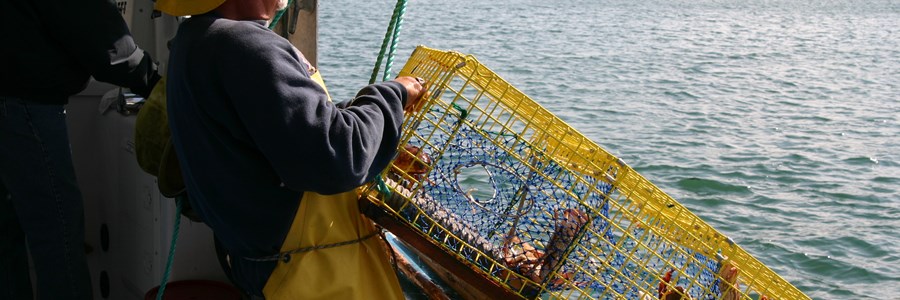EU/FISHERIES: Inaction by Damanaki on Russian Ban of EU seafood products causes further economic disruption to the sector

On the 7th August, the Russian Federation issued a ban on imports from the EU on a range of seafood and agricultural products for a year, or at least until the sanctions imposed by the West on Russia are lifted.
The Directorate-General for Fisheries and Maritime Affairs (DG MARE) has taken no direct action or offered any
display of support, whilst the Directorate-General for Agriculture (DG AGRI) has reacted rapidly by requesting a
potential impact analysis from its officials, approved exceptional measures to assist farmers and a management
committee meeting.
The ban is currently causing economic problems to the fishing sector which is still reeling from radical changes introduced by the recent overhaul of the Common Fisheries Policy (CFP). An estimated 153.8 million Euros (Eurostat, COMEXT) will be lost following the closure of this vital market, made worse with Russia rapidly establishing firm markets elsewhere. The closure of the long-established EU-Russia market on products such as salmon, trout and oysters will inevitably result in surplus stocks, further disrupting the EU market.
President of Europeche, Javier Garat stated: 'It is shocking that not only has the Commissioner proposed no action to address the impact of such economic uncertainty on the industry but absolutely no reaction has been made at all. The ban is causing serious financial losses to the sector at a time when we are already facing a vast swathe of new regulations from Brussels. At this challenging time, our fishermen feel frustrated and need clarity on what is being done to address the impact of the ban.'
In a letter addressed to Damanaki, co-signed by (Europêche, Copa-Cogeca, EAPO, FEAP, EMPA), the EU fishing and aquaculture industries called for a Task Force to be created to support the appropriate management of this issue. The Task Force would work in close cooperation with stakeholders to analyse the impacts of the ban, and to identify new potential markets which would alleviate the concerns and consequences to fishermen. Garat added: 'We must remember, however, that it is important that such a Task Force is initiated in a most timely manner in order that the most efficient preparations can be established. The Commission must take the lead and ensure that serious action is being taken to assist the entire supply chain as well as an already vulnerable catching sector. A stable market for fishery and aquaculture products is essential and we need to be provided with the economic knowledge to mitigate losses to our own fisheries'
Europêche represents the fisheries sector in Europe. Currently, the Association comprises 16 national organisations of fishing enterprises from the following 10 EU Member States: BE, DE, DK, ES, FR, IT, MT, NL, PL, UK.
Press contacts:
Kathryn Stack, Managing Director of Europêche: +32.2.230.48.48 kathryn.stack@europeche.org
Sources: Europêche
Tags: damanaki, seafood, russian, ban